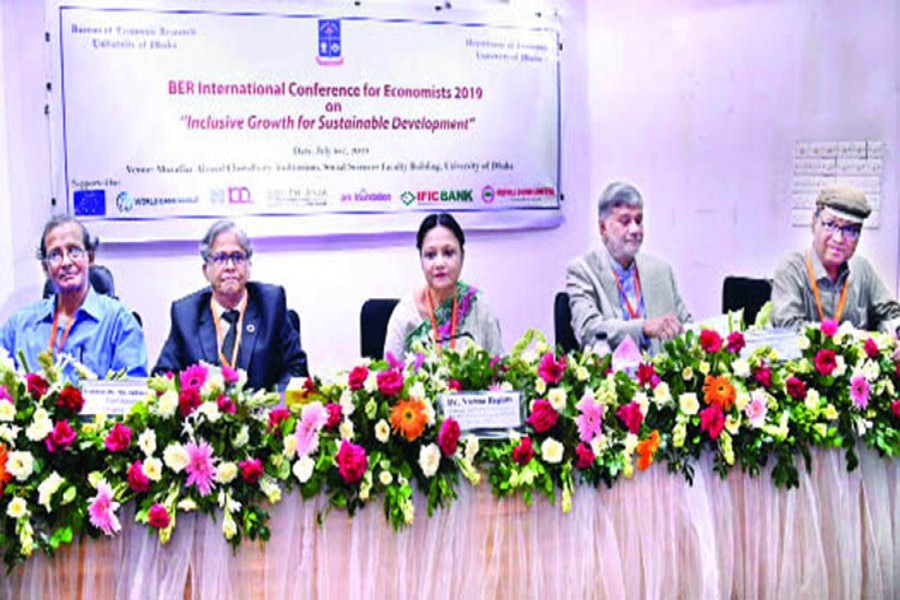'Large-scale reform must to cut growing inequality'
Default loans factor for present state: Rehman Sobhan

Published :
Updated :

Large-scale structural reform is urgently needed in income generation and distribution process to reduce growing inequality in the society, economists opined at an international conference in the capital on Saturday.
They said such structural change will not only ensure proper distribution of resources, but also provide equal opportunities to all segments of people.
Thus, it will accelerate Bangladesh's journey towards ensuring inclusive economic growth for all, they added.
Their suggestions came at a plenary session on the first day of the two-daylong Bureau of Economic Research (BER) Annual Economists' Conference 2019.
The theme of this year's conference is - 'inclusive growth for sustainable development'.
Professor Wahiduddin Mahmud chaired the session, titled 'poverty and inequality', where Professor of the University of Ulster Dr S R Osmani made the keynote speech.
Professor Mahmud said Bangladesh is a country where 'other' systems of income generation and distribution are followed - that are beyond all academic theories and textbooks.
Speaking at the session, noted economist Professor Rehman Sobhan termed huge amount of cumulative default loans in the banking sector as one of the contributing factors behind the widening income inequality in the society.
He said a key portion of (the country's) financial resources has been given to a certain class of people through the banking mechanism, which has not been recovered for years.
"So, it is actually a unilateral subsidy that is not very different from the existing Social Safety Net Programmes (SSNP). We're thus making SSNP for the rich people."
The renowned economist said workers in the manufacturing sector do not get required wages and other benefits despite their direct contribution to productivity and profitability of the units.
"Serious structural reform is needed to cut down the serious inequality that exists in our society."
Giving the example of recent frustration of farmers over their paddy prices, Mr Sobhan noted that failure to recover higher costs of production created the deep concern among the growers.
The economist further said people blame the existing procurement policy as well as the domination of automated and modernised rice-mills that are procuring the staple item (from the farmers).
"So, what would be the logic behind this? The logic would be you (the millers) won't allow the farmers to become owners of automated mills. You (the millers) won't want to link them with final marketing chain, which is the success story of many Scandinavian countries."
"These are the major areas that need to be addressed properly to reduce inequality," he added.
Former governor of the Bangladesh Bank (BB) Dr Atiur Rahman said consumption inequality does not increase at a pace of income inequality in the society, and disparity normally goes up in an economy that is progressing.
"To deal with the situation, we need proper education and urbanisation management through appropriate application of technology."
He also highlighted the importance of introducing higher financial inclusion, green financing tools, and skill development programmes to reap the country's present demographic dividend.
Dr M M Akash, professor of economics of the University of Dhaka, suggested measuring inclusive growth with the spirit of sustainable development goal (SDG) 10.
"If we accept this indicator as a mark of inclusive growth, then the policy regime will change."
To lessen the level of inequality, he also made a number of suggestions, like - implementing progressive wealth and income tax, reducing proportion of direct tax, and increasing employment, productivity and wages of the industrial, agriculture and informal sectors.


 For all latest news, follow The Financial Express Google News channel.
For all latest news, follow The Financial Express Google News channel.